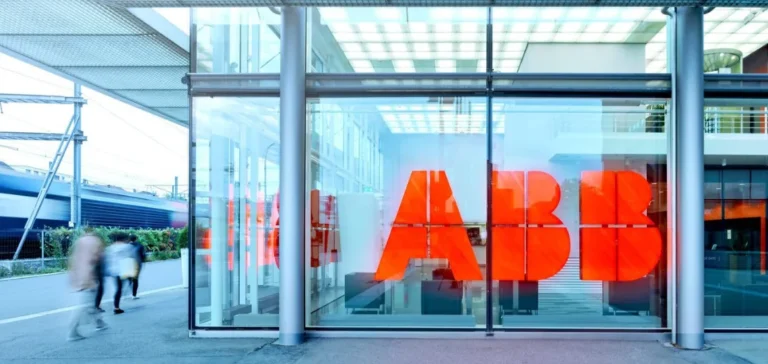Swiss-Swedish industrial conglomerate ABB reported strong financial results for the third quarter, supported by solid demand for electrical equipment dedicated to data centres. The group’s net profit reached $1.2bn (CHF1.10bn), up 28% year-on-year, while revenue rose 9% to $9bn (CHF8.24bn).
Data centres driving growth
The quarter’s commercial momentum was largely driven by orders linked to digital infrastructure. Equipment for data centres recorded double-digit growth, contributing to the 9% increase in orders, which now total $9.1bn (CHF8.32bn). “Global demand for these solutions remains strong,” said Morten Wierod, the group’s Chief Executive Officer.
The results exceeded analysts’ forecasts, which anticipated net profit of $1.16bn, revenue of $8.9bn, and orders at the same level. ABB attributes this performance to its industrial strategy, based on geographic proximity between its manufacturing units and target markets.
Annual outlook and market uncertainties
For the full year, ABB expects low single-digit sales growth of around 5% and anticipates its EBITDA margin to reach the upper end of its long-term target range of 16% to 19%. The group stated that trade tensions, notably tariffs imposed by the United States, have so far had no significant impact on demand or profitability.
The company’s industrial setup, largely focused on local production, has helped limit the effects of rising logistics and tariff-related costs. This approach remains a strategic lever to mitigate the potential effects of future trade barriers.
Strategic refocus and merger rumours
ABB recently changed its plans regarding its robotics division, which will no longer be listed separately but instead sold to Japanese firm Softbank for over $5.3bn (CHF4.85bn). The decision reflects a strategy to refocus on high-growth, high-profitability business areas.
At the same time, reports indicate that ABB attempted to partner with Legrand, its French competitor in electrical equipment. The deal, focused on Legrand’s data centre activities, was blocked by a dual refusal—both from Legrand’s leadership and the French government, which opposed a foreign acquisition of these strategic assets.






















